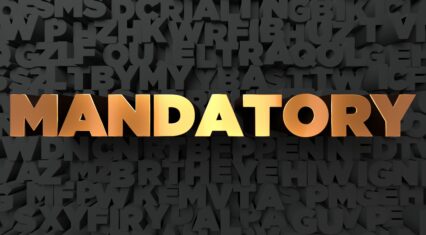Our specialist senior criminal and traffic defence lawyers travel across all courts in NSW from the simple to the most complex cases, including drink driving, drive while disqualified, drug charges, assault charges, AVO’s, fraud, sexual touch and sexual assault charges, firearms and murders. we have experience in murder charges, including mental health defences, s14 mental health applications and bail applications.
Our senior team are available 24/7, who offer free first consultations and fixed fees for most cases.
Our lawyers successfully hold an outstanding track record in securing not guilty verdicts, avoiding criminal convictions (s10’s), and getting charges dropped or downgraded early.
-
Parramatta Court
-
Downing Centre Court
-
Liverpool Court
-
Bankstown Court
-
Bathurst Court
-
Blacktown Court
-
Burwood Court
-
Camden Court
-
Campbelltown Court
-
Dubbo Court
-
Fairfield Court
-
Goulburn Court
-
Hornsby Court
-
Lismore Court
-
Mount Druitt Court
-
Newcastle Court
-
Newtown Court
-
Penrith Court
-
Port Macquarie Court
-
Sutherland Court
-
Tamworth Court
-
Taree Court
-
Tweed Heads Court
-
Windsor Court
-
Wollongong Court
FAQ
Going Through Security
Upon arriving at a local court house, you will first go through security.
You’ll be required to place your mobile phone, keys, and anything metal (which may include your belt and shoes) into a basket, which will go through a security scan as you walk through a metal detector.
Finding the Notice Board
After getting through security you must find the notice board which will have the court list on a wall.
The court list outlines all the peoples’ names who’s matters are listed at court, the court room, number your case is listed as for identification and the time the court will commence.
The online court list is also available on the website note earlier on this page.
You must also attend the court officer who will be seated with a table nearby in the foyer area of the court complex, usually near the notice board.
When you approach the court officer, you must tell him/her your full name, and whether or not you’re representing yourself or have a lawyer representing you.
Your charge paper may tell you to be at court at 9am. When you attend court, the court list may say that your matter is listed at 9:30am. However, practically the Magistrate or Judge may not actually get around to hearing your case until anytime later than 9:30am.
You should then either go inside the court room allocated for your case and take a seat or wait outside in the foyer of the court room door until your name is called by the court officer.
If you fail to attend or you’re not there when your name gets called out, the Magistrate can deal with your case in your absence- this can cause complications with a bad result, or possibly even an arrest warrant issued against you.
Entering the Court Room
After getting through security, finding your court list and having approached the court officer to let them know you’re in attendance, you must then go to and enter the court room allocated to your case.
Prior to entering the court room, you must:
- Turn off your mobile phone or put it on silent
- Take off sunglasses (unless prescription glasses)
- Take off your hat
- Do not take food or drinks with you inside the court room
- Do not chew gum inside the court room.
After you open the court room door, you must:
- Slightly Bow your head once towards the Judge, Magistrate or Registrar who will be seated a few meters opposite inside.
- Take a seat anywhere in the back of the court room and wait for your name to be called.
- When your name is called, and the Magistrate asks you to come forward, approach the bar table or the side of the bar table where there will usually be a microphone for you to speak into. Only answer questions asked, and wait till you are asked to respond or answer.
- Whenever being spoken to or speaking to the Magistrate or Judge in court, always stand up.
- After your case is complete for the day, wait for the Judge or Magistrate to excuse you before leaving the court room.
- When exiting the court room door to leave, you must face the Judge or Magistrate and bow your head once before leaving.
It is important to have a pen and paper with you to take notes of orders the Judge or Magistrate makes in court for your case.
It’s important to know how to address a Magistrate, Judge or Registrar when speaking to one in court.
- If speaking to a Judge or Magistrate, always address him/her as “Your Honour”.
- If speaking to a Registrar, always address him/her as “Registrar”.
When your name is called to come forward to the bar table, you may address the Judge or Magistrate as following, for example:
“Your Honour, my name is ………………. I am the accused person/defendant”.
Politely respond to questions the Judge or Magistrate asks. Do not talk over or interrupt.
Remember to always ask the question to be repeated if you did not hear it. Otherwise, if you don’t understand the question, make sure to ask for the question to be explained.
What to not wear:
- Do not wear a hat, sunglasses (unless they are prescribed), shorts, ripped clothing, revealing clothes, thongs or singlet.
What you may wear:
- There is no requirement to wear a suit and tie.
- You may wear a suite with or without a tie.
- You may wear clothing other than a suite, including smart casual, with shoes.
When entering or leaving one of the court rooms in a court room, it’s common practice to reflect respect to bow towards where the Magistrate or Judge is seated.
It is the same practice of bowing towards the Judge or Magistrate right before exiting the court room.
Mobile phones should be switched either completely off or on silent while court is in session, and there is to be no talking unless invited to talk by the presiding Magistrate or Judge in court.
Taking photos or recording (audio or video) from your phone or camera is strictly prohibited attracting heavy penalties.
If you or someone you know is going to court for a criminal or traffic charge, you can find their court details on the online court list here.
The online court listing provides the court date, time, case number, case name, jurisdiction, court, what the case is listed for, Magistrate or Judge, location, court room and list number.
If you want to find out the outcome of a court case in NSW, you can go to the NSW Caselaw website. This contains publishes judgments and decisions of all courts and tribunals in NSW. It contains results of cases from 1988.
In particular, the Caselaw advanced search allows you to find the court results.
The local court conducts hearings, judgements, sentences, in addition to RMS and police licence suspension appeals, in addition to the following:
- Domestic violence assaults and AVOs.
- Common assaults, actual bodily harm assaults, grievous bodily harm, and wounding charges.
- Drinks driving, drug driving and all traffic charges, including driving while disqualified or suspended, and RMS licence appeals.
- Drug charges, drug possession and drug supply, and cultivation charges.
- Fraud charges, white collar crime, corporate crime, Centrelink fraud and larceny.
- Firearms charges.
- Indecent assault, sexual touching charges.
- Mental health applications under section 32.
- Bail applications, sentences, and defended hearings.
The local court daily list is available online. If you have a specific issue with your case you may also contact the local court registry.
The local court’s jurisdiction is limited to summary and indictable offences from start to end.
Summary offences are less serious kinds of charges, including drink driving and drug possession.
Indictable offences are offences/charges that are more serious which the local court can still finalise by way of sentence or hearing.
The local court can only impose a maximum sentence penalty of up to two years imprisonment for any one criminal or traffic offence.
Where a criminal charge is considered a ‘strictly indictable’ offence, the local court can only deal with it to the extent of case management in the early stages of the case. Eventually it must then go to the higher court referred to the District Court where the District Court can then deal with the case to finality by way of sentence or trial.
The District Court is not limited to imposing a maximum of two years prison for any one criminal offence. It can impose the maximum penalty that the particular charge has.
Criminal record check is also known as a national police checks (NPC) and provides details of someone’s criminal record/history.
It’s usually obtained by employers through a recruitment process, especially if the job involves working with children.
The national police check is not public information. It can only be obtained by consent from the person who’s criminal history check is being sought. The person’s written consent will always be required.
Certain court records are public, unless the court has made an order concealing information.
In criminal cases involving children, usually the child’s name will be omitted and replaced with a pseudonym.
Generally, court case records such as court outcome, name of parties, judgements and decisions are publicly available and can be found on the NSW Caselaw website.
Other case records such as evidence of the case will not be publicly available, except to relevant parties to the proceedings.
For example, a transcript of the proceedings is a transcription of everything said in the court proceedings of a case. This can become important and is commonly used by Judges, lawyers, juries and certain members of the public involved in the proceedings. These may be important if decisions get appealed or where a case (sentence, hearing or trial) goes on for days, weeks or months- only parties to the proceedings or their lawyers are entitled to the transcripts.
The Registrar can provide access if there is a sufficient basis for providing it to a non-party to the proceedings.
Normally there is a right to access certain government information under the Government Information (Public Access) Act 2009 (NSW), but there is no public right to access police reports unless there’s an overriding public interest to release it.
If the police report is about yourself, you can access it. Equally, if relevant, a police report can be obtained by a lawyer or other party to court proceedings.
You can look up and get an update and/or edit police reports online via the NSW Police Force Community Portal.
After registering through this portal, you will be able to retrieve an existing report to view its status, provide further details and updates.
After registering, you will need the police event number or reference number of the report.
Generally, only relevant parties can see a police report. This includes, insurance company, parties involved in the police report and lawyer(s) representing those parties.
Normally, if lawyers are involved, the lawyers can issue a subpoena to obtain police reports through the courts if there are court proceedings on foot.
Police reports are not publicly available to anyone and everyone, unless there is a ground or basis to do so under a public interest.
An accident report is information provided to police regarding a motor vehicle collision outlining versions of the accident, parties names and registration numbers involved, including date and time of incident.
If you were involved in the accident, or you’re acting on behalf of someone who was (i.e. lawyer or insurer), you can request a copy of the accident report by completing P869 Application for Incident Report form.
The form requires a fee per accident report of $93.50.
Local Court records can be obtained by attending the registry. For example, if your case was dealt with by a NSW local court, you can obtain your local court records by attending the court house registry.
Some registry’s if not all by now can also provide this information via email.
Generally, only parties to a court case can have access to information such as evidence and transcripts. However, the outcome of a court case can be ascertained by going onto NSW Caselaw website which contains recent outcomes, judgements and results of criminal and traffic cases dating as far back as 1988.
The NSW Online Registry contains a database of all current court cases that you can search for with date, listing type, location of court and presiding Judge or Magistrate.
To find a criminal or traffic court case online at any NSW local court, the NSW Online Registry allows you to look up all court cases.
All NSW Courts are open courts, meaning they are each open to the public.
Unless the case involves a child giving evidence or the court has made an order for a closed court for any other reason, the courts are open for anyone from the public to enter and watch.
There are seats at the back of every court room for public to sit and watch from.
A court case number is a unique identifier of a court case (aka a reference).
It is the best way to identify the case you are referring to when dealing with court proceedings, formal applications in court and all dealings with the registry.
A court case number is useful when looking up an online case list, if you’re issuing a subpoena or making a formal bail application to lodge with the registry.
CC can mean ‘Correctional Centre’ or it can mean ‘carbon copy’ or ‘courtesy copy’.
Court case titles will have numerous abbreviations to it depending on the case and court.
For example, an example of a case title is:
R v Forsythe [2020] NSWDC 99
The ‘R’ stands of ‘Regina’ which means the Queen.
The ‘v’ is referred to as ‘and’.
‘Forsythe’ is the name of the defendant.
The [2002] is the year of the case, while the ‘NSWDC’ means ‘New South Wales District Court’. The ‘99’ volume number.
These details allow you to easily find the case online.
An example of a published court case containing a court case number is a Supreme Court of NSW decision of TR v Constable Cox & Ors [2020] NSWDC 389.
This case’s case number is 2019/00304946. As you can see this case number is 12 numbers long.
Here we outline what the court does, its procedures and your options in court after being charged.
The local court contains individual court rooms where each have a presiding Magistrate who hears and determines all criminal and traffic cases.
The court also deals with shorter matters, including mentions, call-overs and interlocutory applications, bail applications and RMS and police driver licence suspension appeals.
After you’re charged by police, you’ll be handed a ‘Court Attendance Notice” paper. This is otherwise referred to as the charge paper which shows the charge(s), court and court date you’re required to attend.
On the first court date, generally you have one of two options in court:
- Plead ‘guilty’; or
- Plead ‘not guilty’
Pleading ‘Guilty’
Depending on the charge, generally, if pleading ‘guilty’ in court, the court will proceed to sentence on either the same day or adjourn it for another day.
Pleading guilty early enough can result in a 25% reduction in your sentence, leading to a better result. The later you plead guilty, the smaller the discount will get under the law.
If you require more time to prepare or to get legal advice and representation, you may ask the court for an adjournment to have the sentence heard on another day with the benefit of being properly prepared to max your chances of getting the best possible result.
During sentence, the Judge or Magistrate in court will impose a penalty after hearing further evidence from you. The penalty is also referred to being sentenced in court and can include any one of the following types of penalties:
- Non-conviction section 10 dismissal
- Non-conviction conditional release order
- Conviction with community correction order
- Conviction with Intensive correction order
- Conviction with full-time jail
It’s important to ensure you produce effective thought after evidence to the court on your sentence for the Judge to read before hearing what you wish to submit on.
Some types of evidence you may prepare to improve your sentence outcome include, good character letters for court, apology letter for court and even affidavits or going into the witness box to give evidence in support.
It can significantly increase your chances of remaining conviction free (without a criminal record).
In other more serious cases, it can significantly improve your chances of not getting a jail sentence.
After pleading guilty, it’s important to know that the prosecutor will immediately try to hand the judge a copy of the police facts sheet. Be very careful as you should object to this if there is anything in the police facts that you disagree on.
This is because the judge will not only base the sentence on your evidence and what you submit on in support of your sentence, but also what the police fact sheet says.
The police fact sheet is an outline or summary by police, which makes it a one-sided version as to your offending behaviour regarding what, who, when and how. If this makes you sound worse than what actually occurred, then the judge is likely to impose a heavier sentence.
If the police facts are negotiated and changed to reflect what and how it actually happened, it may put you in a better light, which in turn will likely reflect in a lighter sentence. An experienced criminal lawyer can assist you in doing this before the facts are handed up in court on sentence.
Pleading ‘Not Guilty’
If you decide to plead not guilty to a charge in court, the court will generally adjourn your case to a second court date called a mention. This is so that the police can serve all their evidence by a date before the second court date, with an opportunity for you to read it with legal advice.
Once the evidence is served by police to the defence, your lawyer will review the evidence and provide you further advice before the 2nd court date.
On the second court date, the court will eventually adjourn your case to another date for hearing or trial, either in the local or district court (depending on the seriousness of the charge(s))- but only if all police evidence has been served to the defence.
On the hearing or trial date (or otherwise known as the final court date, the Judge or jury will hear all evidence from both sides before deciding on a verdict of ‘guilty’ or ‘not guilty’.
If you’re found by the court to be ‘not guilty’, the charge(s) will be dismissed. This will put an end to the case and you may on in certain cases be able to claim legal costs from police.
If you’re found ‘guilty’, the charge(s) remain and the court will either proceed to sentence on the same day of adjourn your case for sentence to another court date.
On sentence, the judge will decide on a penalty to impose after allowing you to produce any further evidence you wish to use in support of your sentence.
If you need more time to prepare for sentence, or legal representation and advice, you may ask the court to adjourn your sentence to another day.
Bear in mind, the court will not reduce your sentence (penalty) by 25% if you’re found guilty after a defended hearing or trial. This means the sentence will be harsher than if a plea of guilty was entered earlier in the proceedings.
There may be opportunities in your case to negotiate with police to get charges dropped early, saving legal fees and stresses of going to court. A good experienced criminal defence lawyer can do this early on in the case.






